Thursday, June 27, 2019
The War Power is All Power
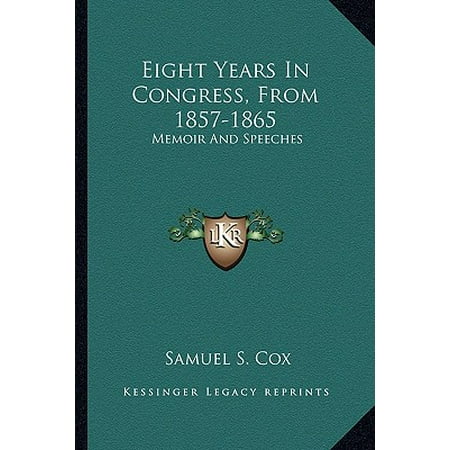
A bill to establish a Bureau of Freedmen’s Affairs was introduced in the House of Representatives on February 17, 1864, by Massachusetts Republican Rep. Thomas D. Eliot. Democrat Rep. Samuel S. “Sunset” Cox of Ohio responds to the bill, in part, below.
www.Circa1865.org The Great American Political Divide
The War Power is All Power
“Mr. Cox said: “Mr. Speaker . . . the member who introduced it [Mr. Eliot] recalled to our minds the fact that we opposed the confiscation bill for its inhumanity. This bill is founded in part on the confiscation system. If that were inhuman, then this is its aggravation. The former takes the lands which are abandoned by loyal or disloyal whites, under the pressure of war; while the present system turns these abandoned lands over to the blacks.
The effect of former legislation has been, in his opinion, to bring under the control of the Government large multitudes of freedmen who “had ceased to be slaves, but had not learned how to be free.” To care for these multitudes he presents this bill, which, if not crude and undigested, yet is sweeping and revolutionary.
It begins a policy for this Federal Government of limited and express powers, so latitudinarian that the whole system is changed. If the acts of confiscation and the proclamations, on which this measure is founded, be usurpations, how can we who have denounced them favor a measure like this?
This is a new system. It opens a vast opportunity for corruption and abuse. It may be inaugurated in the name of humanity; but I doubt, sir, if any Government, much less our Government of delegated powers, will ever succeed in the philanthropic line of business such as is contemplated by this bill.
The gentleman from Massachusetts appeals to us to forget the past, not to enquire how these poor people have become free, whether by law or by usurpation, but to look the great fact in the face “that three million slaves have become and are becoming free.” Before I come to that great fact, let me first look to the Constitution.
My oath to that is the highest humanity. By preserving the Constitution amidst the rack of war, in any vital part, we are saving for a better time something of those liberties, State and personal, which have given so much happiness for over seventy years to so many millions; and which, under a favorable Administration, might again restore contentment to our afflicted people. Hence the highest humanity is in building strong the ramparts of constitutional restraint against such radical usurpations as is proposed to be inaugurated by measures kindred to this before the House.
If the gentleman can show us warrant in the Constitution to establish this eleemosynary system for the blacks, and for making the Government a plantation speculator and overseer, and the Treasury a fund for the Negro, I will then consider the charitable light in which he has commended his bill to our sympathies.
The gentleman refers us for the constitutionality of this measure to the war power [of Lincoln], the same power by which he justifies the emancipation proclamation and similar measures. We upon this [Democratic] side are thoroughly convinced of the utter sophistry of such reasoning.
If the proclamation be unconstitutional, how can this or any measure based on it be valid?
The gentleman says, “If the President had the power to free the slave, does it not imply the power to take care of him when freed?”
Yes, no doubt. If he had any power under the war power, he has all power.
Under the war power he is a tyrant without a clinch on his revolutions. He can spin in any orbit he likes, as far and as long as he pleases.”
(Eight Years in Congress, 1857-1865: Memoir and Speeches of Samuel S. Cox, Samuel S. Cox, D. Appleton and Company, 1865, excerpts pp. 354-356)
NC: Saving the Fish House: Ocracoke Islanders keep their fishing heritage alive
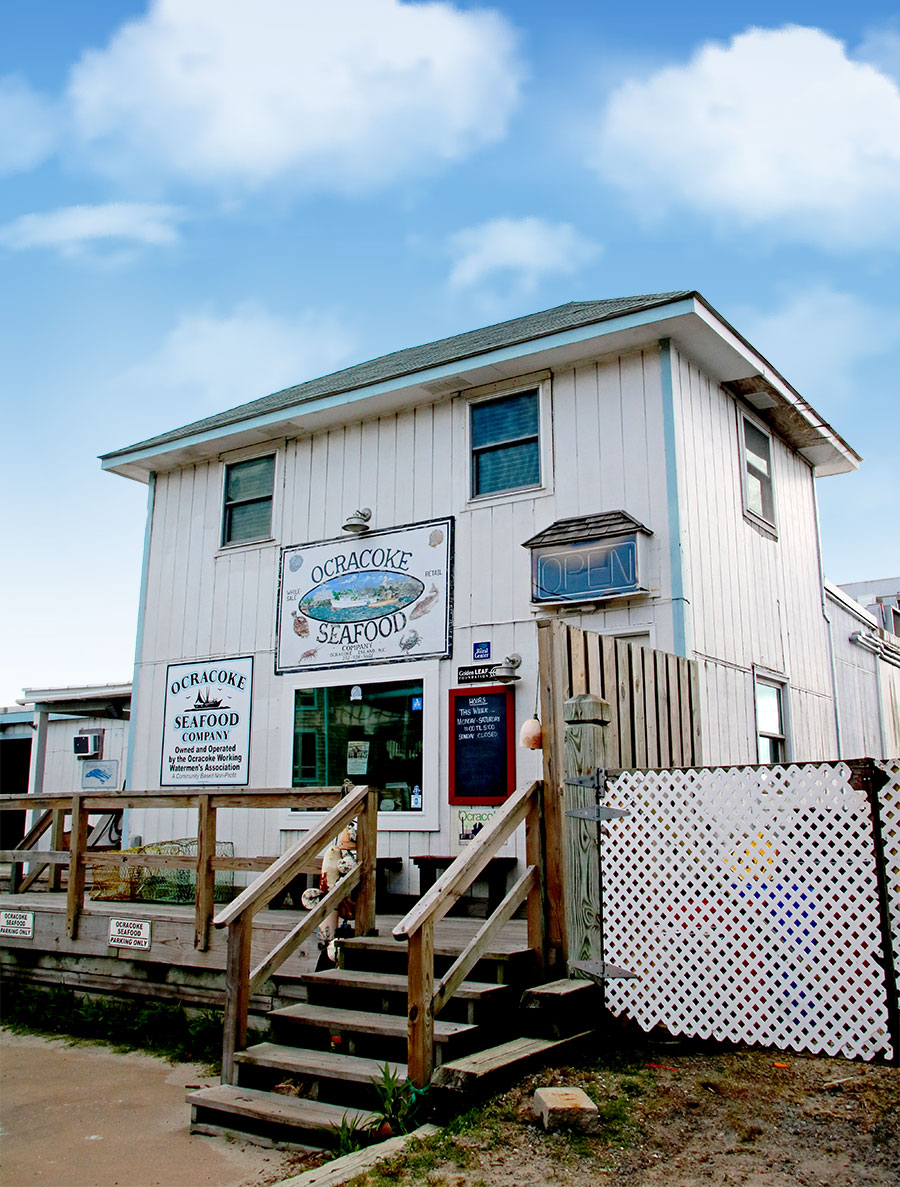
“We ate fish three times a day. It was fried for breakfast, stewed for dinner, and baked for supper. Next day we turned it round the other way,” shares Roy Parsons in the oral history, “Ocracoke Still Speaks.” [Click on the audio file below to hear Parsons share this story, part of the oral history compilation “Ocracoke Still Speaks.”] OCRACOKE’S BROGUEJames Barrie Gaskill was a waterman to the core. Before he unexpectedly passed away in June 2017 while tending his nets, he would spend a portion of his day hanging out at the fish house on Ocracoke Island, watching the comings and goings of commercial fishermen and fisherwomen. He was a teacher and later principal at Ocracoke School, but for much of his life he made a living on the sea.
More @ Carolina Country
NC: The Lost Colony Brings History to Life Since 1937
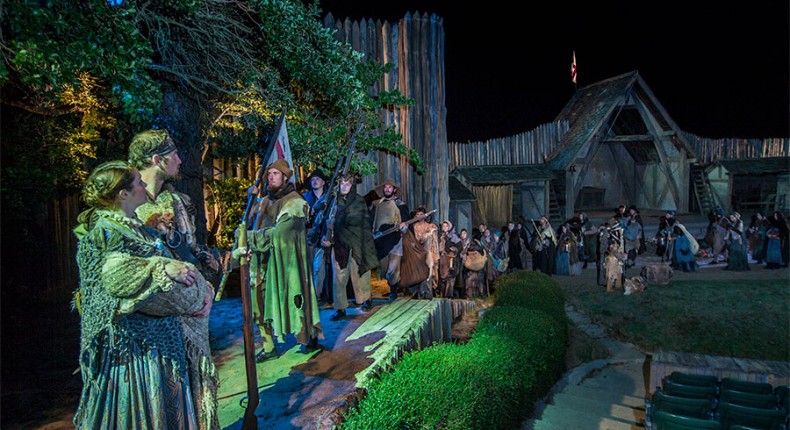
Bill Coleman apologizes for the background noise. He is discussing “The Lost Colony” outdoor historical drama in Manteo over the phone.
“Today is the first day of rehearsals, and it’s the first time the choir’s members have sung together,” he explains as the sound of harmonious voices swells in the background, recreating music from the 1500s. “We have 19 days to get ready for opening night — learning lines, music and choreography, production cues, stage blocking and all that goes into a 75-performance season. It’s one of the closest things to a Broadway experience without being on Broadway.”
More @ Carolina Country
INFOGRAPHIC: EVERYTHING YOU NEED TO KNOW ABOUT THE SUPER TUCANO

With a total of more than 250 aircraft assembled in Brazil and in the United States, the Super Tucano was designed to operate in combat situations under the harshest of conditions. See more here about this aircraft that can be assembled into more than 150 different configurations.
More @ Embraer
Wheelchair-Bound Woman Can Walk After Trump Cut Red Tape Preventing Her Treatment
Via Billy

While President Donald Trump can justifiably boast a long list of accomplishments since taking office, one in particular was directly responsible for saving a young cancer-stricken woman’s life.
During Wednesday’s Faith and Freedom Coalition conference, the woman made sure Trump knew exactly how thankful she was that he gave her the chance to secure a quality of life that her doctors said was virtually impossible.

While President Donald Trump can justifiably boast a long list of accomplishments since taking office, one in particular was directly responsible for saving a young cancer-stricken woman’s life.
During Wednesday’s Faith and Freedom Coalition conference, the woman made sure Trump knew exactly how thankful she was that he gave her the chance to secure a quality of life that her doctors said was virtually impossible.
More with video @ WJ
In Major Elections Ruling, Supreme Court Allows Partisan Map Drawing
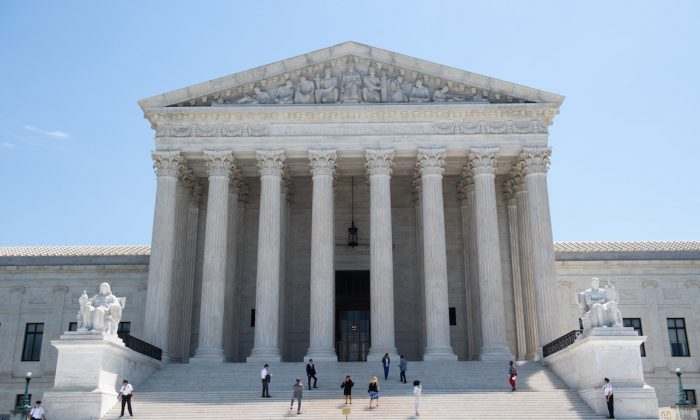
It sided with Republican lawmakers in North Carolina and Democratic legislators in Maryland who drew electoral district boundaries that were challenged by voters.In a major blow to election reformers, the U.S. Supreme Court on Thursday rejected efforts to rein in electoral map manipulation by politicians aimed at entrenching one party in power, a contentious practice known as partisan gerrymandering that critics have said warps democracy.
In a 5-4 ruling that could reverberate through U.S. politics for years to come, the justices ruled that federal judges do not have the ability to curb partisan gerrymandering.
More @ The Epoch Times
A celebration of history: 87 years later, Private Mitchum gets memorial
Via Billy Bearden
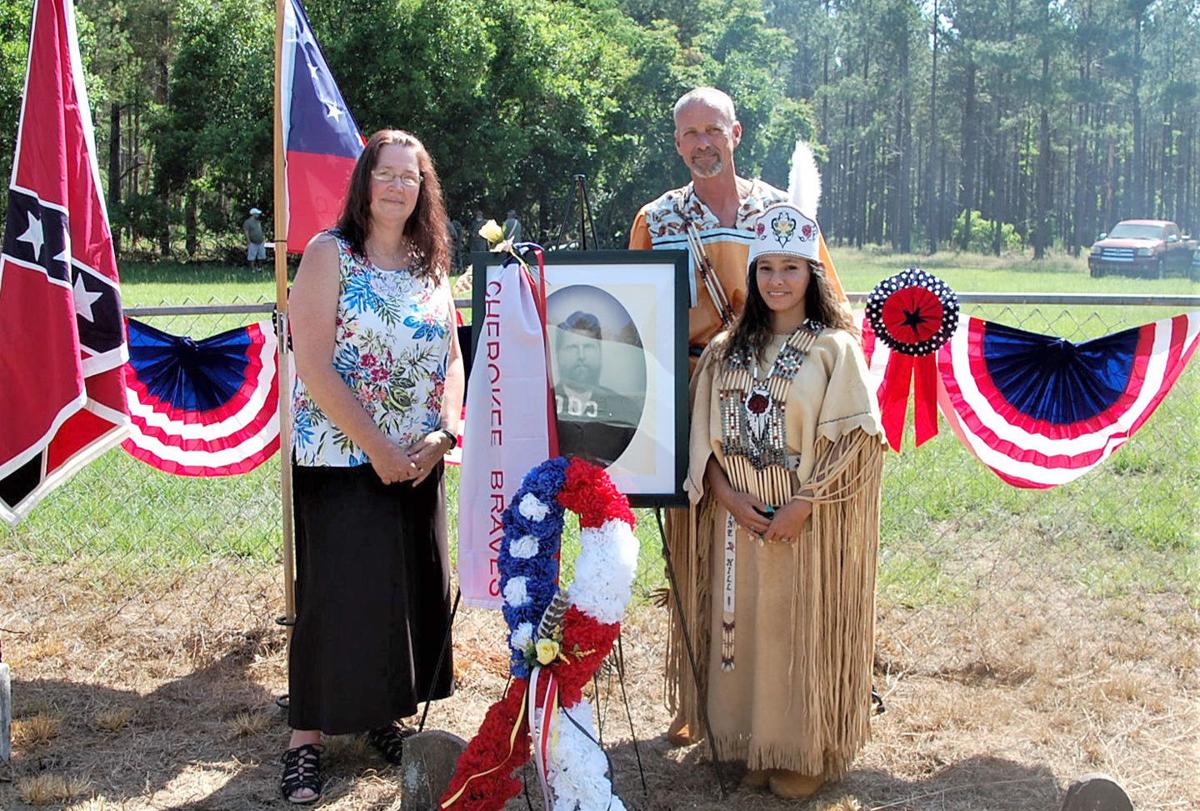

The memorial was a concerted effort of the Pine Hill Indian Tribe, Keepers of the Word (Native American Ministry), Carolina Indian Heritage Association, Sons of the Confederate Veterans Rivers Bridge Camp 842 and HL Hunley Camp 143 from Summerville.On June 1 a long-overdue memorial service was held for Confederate Private Henry Mitchum, who was a Native American from Ehrhardt.
The ceremony was held at the Mitchum-Chassereau Cemetery near Ehrhardt.
More @ The Times and Democrat
Trump threatens to expand his trade war by slapping tariffs on Vietnam
Via Lê Bá Dzũng
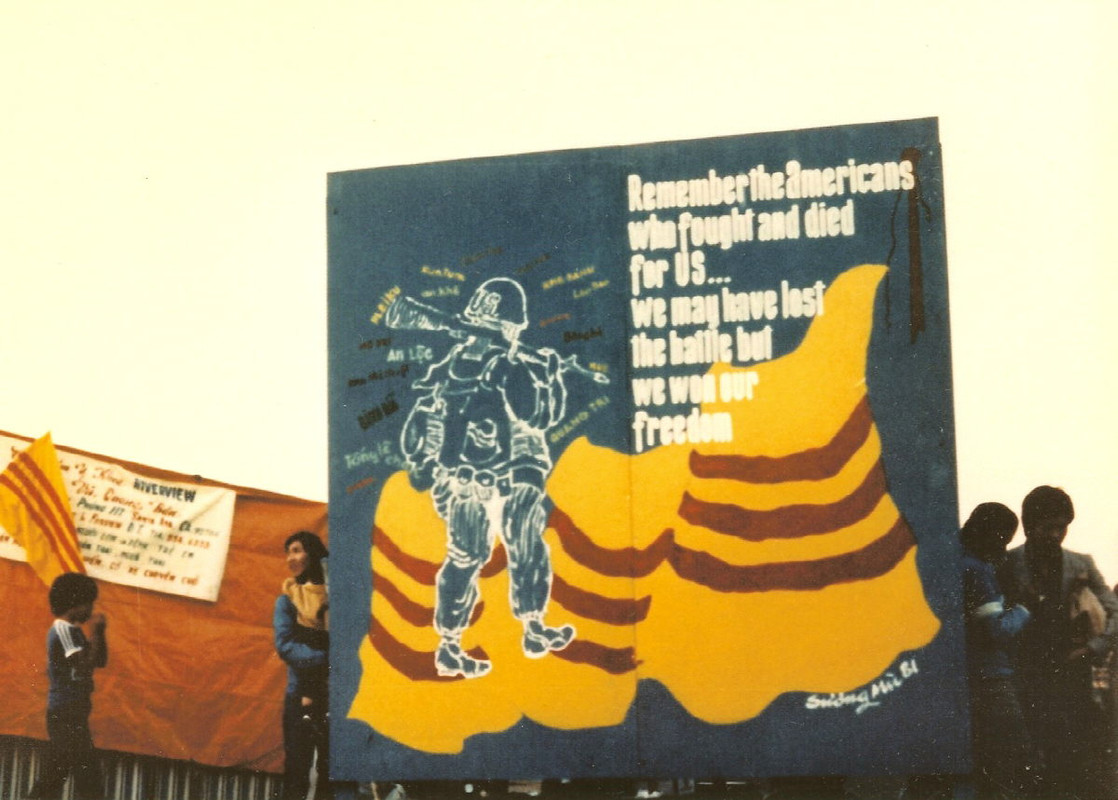

I took the picture in Little Saigon 1975/6.
- President Donald Trump may be getting ready to open a new front in his trade war against one of China's neighbors: Vietnam.
- During an interview on Wednesday with Fox Business host Maria Bartiromo, Trump threatened to impose tariffs on Vietnam.
- In 2017, US trade with Vietnam amounted to $58.2 billion, according to the Office of the US Trade Representative.
More @ Business Insider
